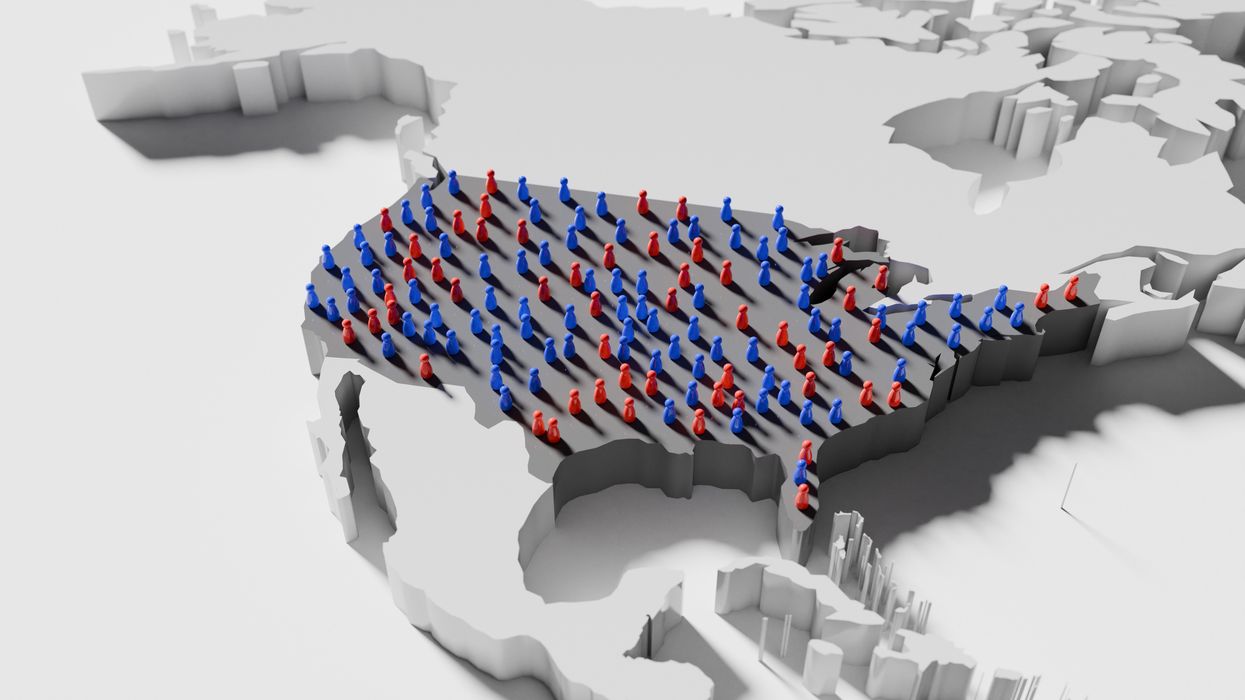Goldberg is editor-in-chief of The Dispatch and the host of The Remnant podcast. His Twitter handle is @JonahDispatch.
The term “ realignment ” gets used and abused a lot, because people have agreed to use it without agreeing on a definition. Traditionally, realignments are said to have occurred when majority and minority parties switch places. Starting in 1932, FDR pulled blacks and working class and immigrant whites into the Democratic Party, making it the majority party for generations. It’s a sign of how massive that coalition was that it’s been shrinking since the 1960s without Republicans ever becoming the clear majority party, though the story gets complicated with the rise in voters calling themselves independents.
For the last 20 years, the parties have essentially been tied, and it seems unlikely that will change anytime soon. But there’s still a whole lot of realigning going on. Donald Trump has accelerated the trend of the white working class fleeing the Democrats. Meanwhile, college-educated and suburban voters have moved significantly toward the Democrats.
In other words, while the parties are stuck in a logjam, the coalitions making up the parties are changing dramatically.
And that’s where the inconsistency and hypocrisy come in. Parties reflect the interests of their electoral coalitions. You can see signs of the adjustments all over the place. Republicans such as JD Vance sound a lot like anti-war Democrats from 20 years ago, railing against warmongers, chickenhawks and “neocons.” Democrats haven’t changed as dramatically, but they are far more comfortable talking about American global leadership and the importance of our alliances than they used to be.
Parties also reflect their candidates, which is why the party of philandering Bill Clinton now talks a lot about good character while Republicans fawn over Trump’s alpha dog “ manliness.”
Democrats have been far more consistent on abortion, because in a post- Roe environment it’s a winning issue. But Trump has moved the GOP toward a de facto pro-choice position, denouncing “heartbeat bills” while also insisting that states should be free to do what they please on abortion.
Neither party is coherent — or good, in my opinion — on trade and industrial policy, but Trump has definitely made the GOP more protectionist and dirigiste than at any point in my lifetime. Given the movement of rank-and-file members of private sector labor unions toward the GOP it’s not hard to imagine a new partisan divide between public and private sector unions.
The most interesting change might be on the issue of democracy itself. I don’t mean the arguments about Trump’s pernicious election fraud lies (the sorts of lies once associated with left-wing Democrats like Robert F. Kennedy Jr.), but the broader debates about the Electoral College and so-called “voter suppression.”
For decades, both parties shared the flawed assumption that higher voter turnout mostly benefited Democrats in national elections. (Democrats had the opposite view in big city elections.) Voter ID laws and tighter restrictions on early and absentee voting were seen as a way to make sure that high-propensity voters — i.e., disproportionately Republican college-educated suburbanites who could be relied upon to vote — were overrepresented, and low-propensity voters — Black, Latino and rural non-college educated whites — were underrepresented. The overheated rhetoric about “voter suppression” or “election integrity” was unjustified. But the dynamic was real, because the electoral calculation was real.
After 2016, many Democrats doubled down on the claim that the Electoral College was racist or undemocratic, which was itself remarkably hypocritical given their previous boasts that the Democrats had a near- lock on the Electoral College: That’s where the phrase “ the blue wall ” originated. Bragging about your advantage in the Electoral College only to call it racist and undemocratic when it works against you is not a great look.
In 2024, the Harris campaign relied on high-propensity voters while the Trump campaign leaned heavily on low-propensity men. Assuming these trends are real and that they become the new normal, it will be interesting to see whether the parties switch their rhetoric about democracy.
©2024 Tribune Content Agency, LLC.




















Trump & Hegseth gave Mark Kelly a huge 2028 gift